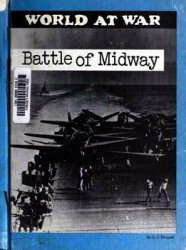This chapter has examined the influence of the classical world upon African culture in several areas. The politicization of the classical tradition reflects the postmodern tendency to decenter the cultural works and ideas of Greece and Rome from their western orientation and to destabilize them in terms of their position of cultural dominance. At the same time the globalization of the classical tradition reflects the expansion of the concept of the classical tradition to geographical areas such as Africa and to modern critical disciplines such as postcolonial studies. The classical tradition is a complex, sometimes fragmented, web of interconnected works, images, and ideas, which naturally has contributed to its becoming an area of cultural contestation. Consistent with broader cultural shifts occurring elsewhere in the world, cultural politics in Africa has resulted not only in a lessening of the Eurocentric focus on the study of the classical tradition but also the treatment of the modern work as equal to the original classical work. In the African context the concept of the classical tradition is open to challenge on the basis that it is neither entirely classical nor a cohesive tradition, but rather a fragmented form of cultural hybridity in which classical and postcolonial elements from different cultures - not just African and European - converge and diverge. Cultural developments in Africa have shown that classical texts, images, and ideas continue to provide the basis for much reflection on the subcontinent and to serve as a stimulus for political and social transformation. This cultural phenomenon will continue to ensure that there are rich opportunities for scholars interested in the role of the classical tradition in Africa not only in examining the extent to which Africans adapt classical works, images, and ideas but also on the problem of western aesthetic responses to Africanized literary and dramatic forms.
FURTHER READING
The bibliography for the classical tradition in Africa is extensive. Dominik (1999, 2003) provides brief overviews (in German, with bibliography) of the reception of the classical tradition in Africa. Wetmore (2002) and Budelmann (2004) discuss adaptations of Greek drama by postcolonial playwrights, while Mezzabotta (2000) and Dominik (2006) specifically treat South African postapartheid and Afrikaans drama, respectively. Beinart (1952) neatly summarizes the role of Roman law in the practice of South African law. On the influence of classical architecture upon modern South African architecture, see Lewcock (1963), Greig (1971), and Fransen (1987).
A Companion to the Classical Tradition Edited by Craig W. Kallendorf Copyright © 2007 by Blackwell Publishing Ltd




 World History
World History









